Workshops
The Arboretum offers workshops all year round covering a wide variety of topics from birds to mushrooms to gardening to art. Virtual programs are offered live on Zoom, and recordings are made available for registrants to access for a limited time. Details on registration policies can be found on our Registration Information page. View a complete list of The Arboretum's programs on our Workshop Descriptions page.
Upcoming & Current Workshops
Virtual Garden Fundamentals
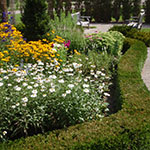
Tuesdays, January 27, February 3, 10, 17, 24, March 3, and 10, 2026
7:00 PM - 8:00 PM
Format: Online via Zoom
Instructor: Robert Pavlis
Learn more about the Gardening Fundamentals Series
Garden Fundamentals will focus on ornamental gardens including trees, shrubs, perennials, bulbs and grasses. You will gain a good understanding of how these plants grow and their relationship with the soil. We’ll cover lots of practical topics such as planting, maintenance, plant selection, sun/shade requirements, and Robert will give you some of his top picks. This course is suitable for the beginner and intermediate gardener.
Week 1: Techniques - Gardening techniques will be discussed including making new beds, raised beds, composting, crop rotation, mulching and cover crops.
Week 2: Vegetables - This week Robert will discuss growing vegetables from seed including how to start them indoors, transplanting, selecting the right kind, summer care and harvesting.
Week 3: Starting from Seeds - This session is about more advanced topics on seeds including collecting, cleaning, storing, stratification etc. He will also provide the all the information you need to start any seed you want including trees, shrubs, annuals and perennials.
Week 4: Trees and Shrubs - An introduction to trees and shrubs. Selecting, planting, growing them for success. As well as an introduction to pruning them.
Week 5: Perennials - This will be a start to finish course of perennials including selecting, growing planting, dividing. Robert will discuss different types of perennials and how to design with them.
Week 6: Bulbs and Grasses - Spring bulbs, summer bulbs and perennial grasses. They are all essential for a garden that flowers all season long.
Week 7: Pests, Diseases and Garden Myths - This will be a short introduction to pests and diseases, explaining how Robert handles problems in the garden. The second half of the night will look at a wide range of garden myths.
Robert is a Master Gardener and garden writer who publishes two popular gardening blogs and has published several gardening books. He owns and operates a private botanical garden where he grows over 3,000 different varieties of plants.
Fee: $10 (plus HST) per person, per session or sign up for all 7 and get one free ($60 instead of $70). Please note: You must sign up for all 7 at once in a single transaction to receive the discount.
Winter Storytelling Series

Fridays, February 27, March 27, April 24, 2026
10:30 AM - 12:00 Noon
Format: In-Person
Instructor: Cara Loft
Learn more about our Winter Storytelling Series
Friday January 30th - Story of the Little People
Friday February 27th
Friday March 27th
Friday April 24th
We will start in a good way with song and smudge.
Fee: FREE (Registration required)
Stargazing
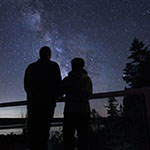
Thursdays (November - May), as listed below
6:30 PM - 8:30 PM or 9:00 PM - 11:00 PM, as listed below
Format: In-Person
Instructor: Trevor Chandler and / or Michael Wright
Learn more about the Stargazing Programs Workshop
Our goal is to run 2 of the following programs:
Thursday, November 27, 2025, 6:30 to 8:30 p.m.
Thursday, January 22, 2026, 6:30 to 8:30 p.m.
Thursday, February 26, 2026, 6:30 to 8:30 p.m.
Thursday, March 26, 2026, 9:00 to 11:00 p.m.
Thursday, April 23, 2026, 9:00 to 11:00 p.m.
Thursday, May 28, 2026, 9:00 to 11:00 p.m.
The weather makes stargazing very unpredictable and therefore hard to schedule. Instead of opening up registration for all of these dates and having to cancel some of them, we are instead going to have everyone who is interested sign up on a list (there is no fee to do this). To sign up on the list click on the link to register for workshops and you will find the link for the list in the list of workshops.
The morning of each of the above listed dates we will send an email out by 10:30 AM to let you know whether the instructors are going to run the program or not. Their decision will be based both on the sky and the weather (ie. if it is forecasted to be excessively cold the program will not run). The registration will open when we send the email out. Anyone can register for the program regardless of whether they are on the sign up list or not.
Fee: $19 (plus HST) per person, per session. Please note these programs are non-refundable once you register and pay for them.
![]()
Restoring Fruit Trees
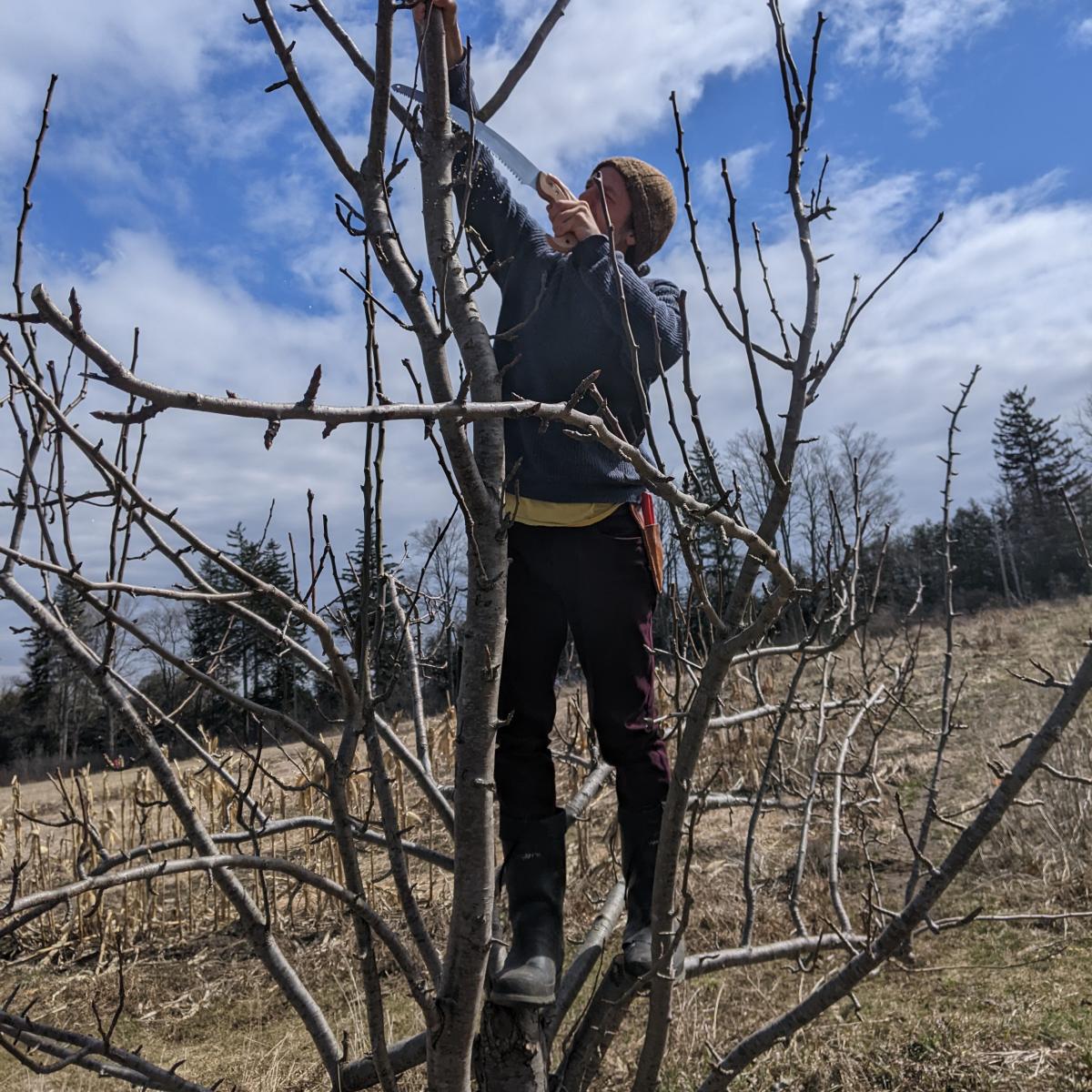
Tuesday, March 10, 2026
1:00 - 4:00 PM
Format: In-Person
Instructor: Matt Soltys
Learn more about the Restoring Fruit Trees Workshop
Do you have a fruit tree in your life that you'd like to care for? This is a hands-on workshop on fruit tree pruning, using apple trees on The Arboretum grounds to demonstrate proper techniques. You'll learn how to prune for ideal branch structure, how restore old apple trees, how to train new trees for early productivity, and how pruning integrates with other elements of fruit tree care, such as holistic pest & disease management.
Fee: $65 (plus HST) per person if booked before the early bird deadline of Monday, March 2, 2026. After the early bird deadline the fee is $75 (plus HST)
![]()
Virtual Creating Healthy Soil
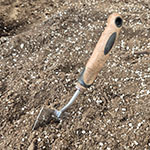
Tuesdays, March 17, 24, 31, 2026
7:00 PM - 8:00 PM
Format: Online via Zoom
Instructor: Robert Pavlis
Learn more about our Creating Healthy Soil Program
Join Robert Pavlis as he discusses how to create Healthy Soil. Below is a description of what he will discuss each week. You can sign up for one, two or all three of the workshops.
Week 1 - Soil Basics - What is soil and how do the basic components work together to provide a plant's needs? How do various gardening techniques affect soil and what is good soil?
Week 2 - Nutrients and Fertilizers - The role nutrients play in plant health and how plants get their nutrients. The role of the rhizosphere. How and when to use synthetic and organic fertilizers.
Week 3 - The Secret to Healthy Soil - What is healthy soil and how does a gardener develop the best soil in the neighborhood to grow great plants.
Robert is a Master Gardener and garden writer who publishes two popular gardening blogs and has published several gardening books. He owns and operates a private botanical garden where he grows over 3,000 different varieties of plants.
Fee: $10 (plus HST) per person, per session. The cost for all 3 sessions is $30 (plus HST)
The Art and Practice of Pruning
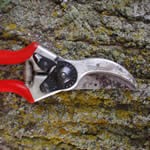
Wednesday, March 25, 2026
9:00 AM - 12:00 NOON
Format: In-Person
Instructor: Kellen Wood
Learn more about the Pruning Workshop
This half-day workshop will introduce you to the fundamentals of pruning woody plants and aims to provide you with basic skills to confidently approach pruning in your own landscape. We begin with how to form pruning strategies, including choosing and maintaining equipment and understanding plant growth and timing. Pruning cuts and techniques will be discussed, demonstrated, and practiced together outdoors. This workshop's focus is on a wide variety of woody plants, please see the "Restoring Fruit Trees Workshop" for a fruit tree specific workshop.
Fee: $65 (plus HST) per person if booked before the early bird deadline of Monday, March 17, 2026. After the early bird deadline the fee is $75 (plus HST)
![]()
Woodcock Walk
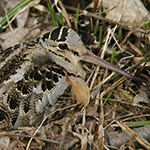
Thursday, April 9 OR Friday, April 10, 2026
7:30 PM - 8:30 PM
Format: In-Person
Instructor: Joseph Langlois
Learn more about our Woodcock Walk
A breathtaking ascent to the skies, a graceful fall to the ground, and a mesmerizing, yet quirky, call… PEENT. The sky dance of the American Woodcock is a truly incredible spectacle, and we at The Arboretum invite you to join us in a search for this captivating display! Our Woodcock Walk begins at the Nature Centre, where we’ll unveil some of the mystery behind these aerial acrobats before heading into the field with hopes of witnessing their enchanting performance in person.
Fee: $12 (plus HST) per person.
Nature Throughout the Seasons for International Students and New Canadians Series
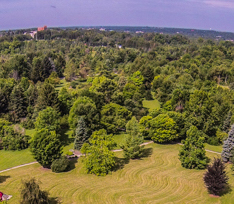
Facilitated upon request
Format: Online via Zoom
Instructors: Arboretum Interpretive Interns
Learn more about our Nature Throughout the Seasons for International Students programs
Fee: FREE!
This online series is catered to University of Guelph international students and other community members new to Canada. New to the area? Come with us to explore The Arboretum and learn about what you can find in nature throughout the winter, spring, summer, and fall!
Visit the Nature Throughout the Seasons for International Students and New Canadians Series program page to learn more and register for upcoming dates. Please note that at this time this program is being offered to a special group instead of as a public program. If you are part of a group that is interested, please contact us for further information.
